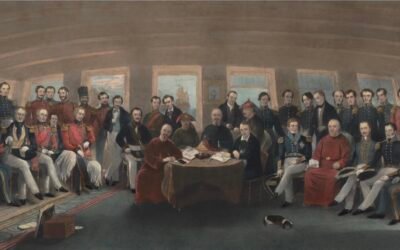Some women are hurt by private perpetrators. Others have to resist the violence of the state, as it happens in the Tai Ji Men case.
by Daniela Bovolenta
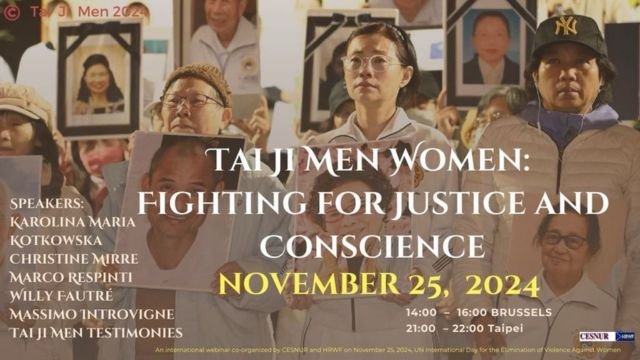
On November 25, 2024, United Nations International Day for the Elimination of Violence Against Women, CESNUR and Human Rights Without Frontiers organized one of their regular webinars on the Tai Ji Men case, with the title “Tai Ji Men Women: Fighting for Justice and Conscience.”
Marco Respinti, an Italian scholar and journalist who serves as director-in-charge of “Bitter Winter” introduced the webinar by presenting the figure of American feminist activist Susan B. Anthony. He noted how the campaigns for the abolition of slavery and for the right of women to vote were conducted together. In 19th century society, Respinti said, female activists for women’s rights faced obstacles that it is difficult for us even to understand today. However, when we look at the bravery and resilience of the women of Tai Ji Men in the face of the violation of their rights and of more than two decades of harassment, we can have a glimpse of what determined women can testify and achieve, Respinti said.
Respinti then introduced the video by UN Secretary General António Guterres for the United Nations International Day for the Elimination of Violence Against Women. Guterres stated that mistreating women, social unrest, and war are connected. On the other hand, he tried to dispel the myth that nothing can be done to stop violence against women. While the problem will never be totally eliminated, he claimed that domestic and international campaigns did achieve meaningful results.
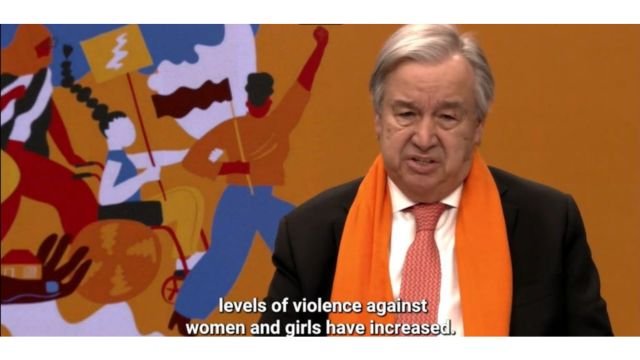
Respinti then presented the speakers of the first session, Karolina Maria Kotkowska, assistant professor in the Centre for Comparative Studies of Civilizations, Jagiellonian University, Kraków, Poland, and Christine Mirre, deputy director of the UN ECOSOC-accredited NGO Coordination des associations et des particuliers pour la liberté de conscience (CAP-LC).
Kotkowska noted that efforts to promote women’s rights in the 19th century were strictly connected to three spiritual movements: the Quakers, Spiritualism, and the Theosophical Society. One reason was that non-Orthodox religions often had women leaders and offered to women a platform for speaking in public, which they could then use for their promotion of female suffrage and other feminist causes. Kotkowska also mentioned the teachings about women as custodians of the values of peace, love, and conscience by Dr. Hong Tao-Tze, the Shifu (Grand Master) of Tai Ji Men, and how they inspired the resilience of female dizi (disciples) in the face of persecution.
Mirre told the story of Rosa Parks, the African American woman who in 1955 in Alabama refused to give her bus seat to a white passenger as the local laws then mandated. Mirre then compared the bravery of Rosa Parks with the one of female Tai Ji Men dizi who confront persecution. She mentioned Mrs. Huang, who resisted police brutality during a demonstration, and the late Madam Yu Mei-Jung, the beloved Shimu, the wife of the movement’s Shifu Dr. Hong, who was unjustly detained with him in 1996 and shared all his trials and victories.
Willy Fautré, co-founder and director of Human Rights Without Frontiers, introduced the second session. He first presented a video about a boy suffering with leprosy, who asks the bodhisattva of compassion why this is happening to him. He is told that in a past life he was a harsh and cruel judge. The moral of the story is that judges and public bureaucrats should exercise their power with moderation.
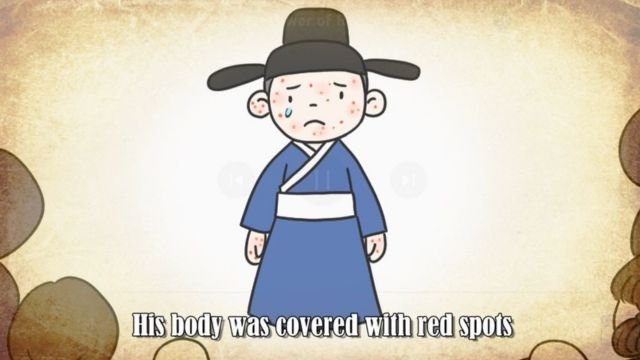
Fautré then introduced the testimonies of five dizi. Dora Chen, a university student, noted that her psychology classes often discuss stereotypes of submissive women still present in Taiwanese society. She said that Shimu, Madam Yu Mei-Jung, proved with her life that not all women in Taiwan correspond to the stereotype, not only when she resisted unjust detention but also through her work as a leader of Tai Ji Men and constant reference for the dizi.
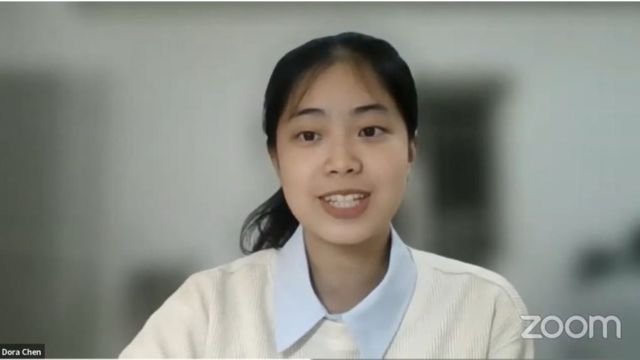
Eric Kan, a student fresh from graduation, returned to the incident of Mrs. Huang, which happened on September 19, 2020. While attention often focuses on private perpetrators of acts of violence against women, Kan said, the case of Mrs. Huang demonstrates that sometimes violence comes from the state. In this sense, Kan argued, Mrs. Huang’s incident is a mirror of the broader Tai Ji Men case, which has featured a long list of injustices that have particularly affected female dizi.

Andra Wang, another university student, mentioned that in addition to the case of Shimu, incidents should not be forgotten about female dizi who were subject to domestic violence or social discrimination because of the slander campaign promoted by Prosecutor Hou Kuan-Jen after he started the case against Tai Ji Men. Wang expressed the hope that the systemic problems of Taiwanese justice may be addressed so that cases such as the one driven by Hou’s violations of law will never happen again in Taiwan.
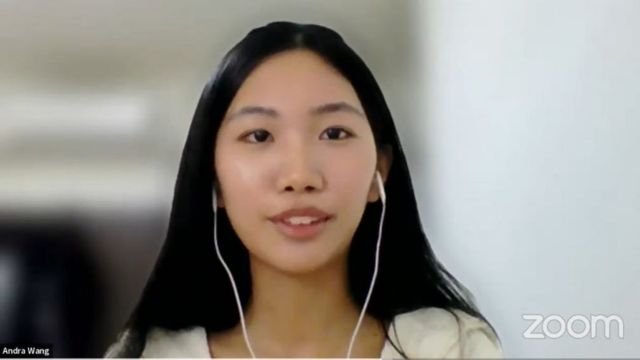
Sophia Chen, an elementary school teacher of social sciences, reported how she felt inspired by the story of Malala, the Pakistani girl who fought for women’s education in areas controlled by the misogynist Taliban and was awarded the Nobel Peace Prize in 2014. She also mentioned the Garden of Hope Foundation, which assists in Taiwan women victims of domestic violence and their children. However, Chen said, a darker side of Taiwan emerges when women are targeted by corrupt bureaucrats through taxes, as it happened to Wu Pei-Chun, who tried to save a struggling cram school and ended up being asked to pay enormous taxes. The case resonates with the experience of Tai Ji Men, which was falsely accused of operating a cram school.
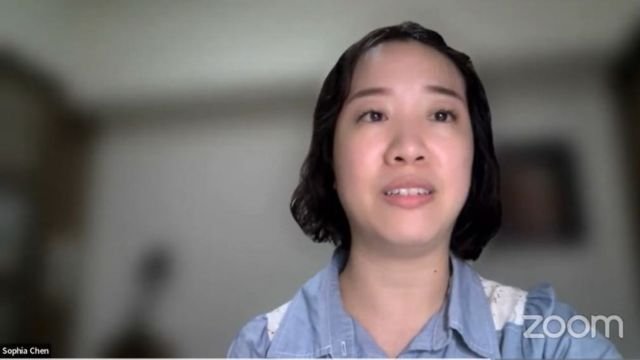
Karen Huang, an international sales representative, started by sharing two stories from Taiwan: of a fellow worker who was sexually harassed by her boss in her company, and of an African drum teacher who was abused by the police after a routine control on the road. Both reported the incidents and obtained the punishment of those responsible, and in the second case a significant indemnification as well. This proved that when women bravely speak up, they can greatly advance the cause of justice, as happened in the case of Tai Ji Men’s late Shimu, Huang said.
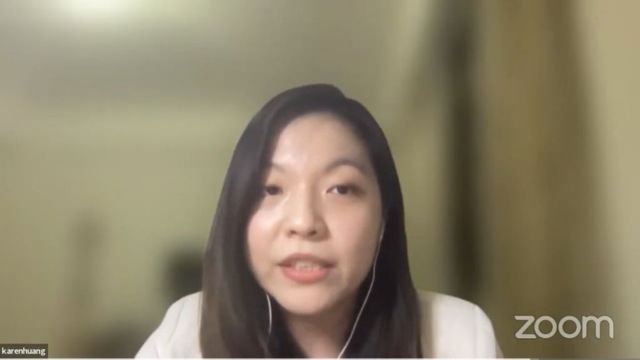
Massimo Introvigne, an Italian sociologist who is the managing director of CESNUR and the editor-in-chief of “Bitter Winter,” concluded the webinar by observing that very often women who emerge as religious leaders are persecuted. He compared the 17th century African prophetess Beatriz Kimpa Vita with Joan of Arc. Both women claimed to hear from God, raised an army to liberate their country, and ended up being burned at the stake as heretics. Introvigne also mentioned the fictional Joan of Arcadia, the main character of a TV series set in contemporary California and named after Joan of Arc. She also receives messages from God and encounters considerable opposition, although in modern America nobody burns her at the stake. Introvigne concluded that the quiet heroism of the female Tai Ji Men dizi is more similar to the one of Joan of Arcadia. Not all persecutions are bloody but all cause unjust suffering.

As usual, the webinar concluded with a musical video, in this case “Calling of Conscience,” where children learn how to listen to the still small voice of conscience.


